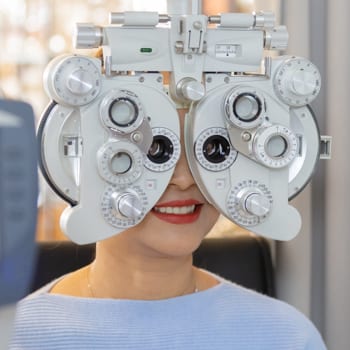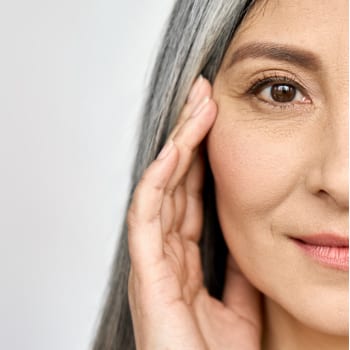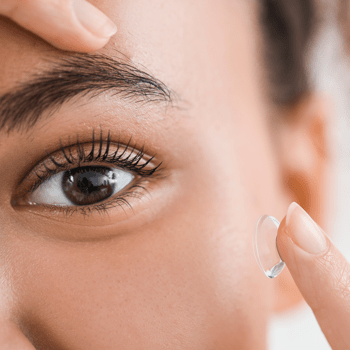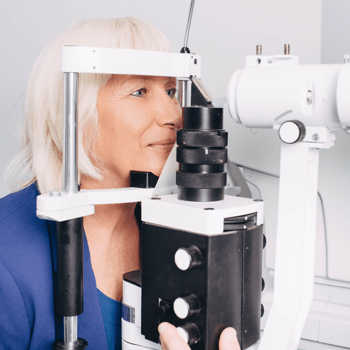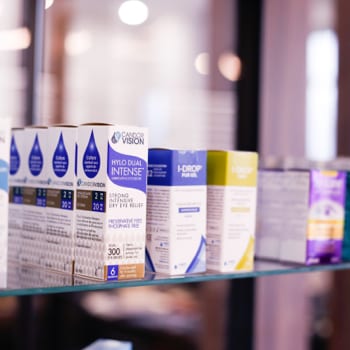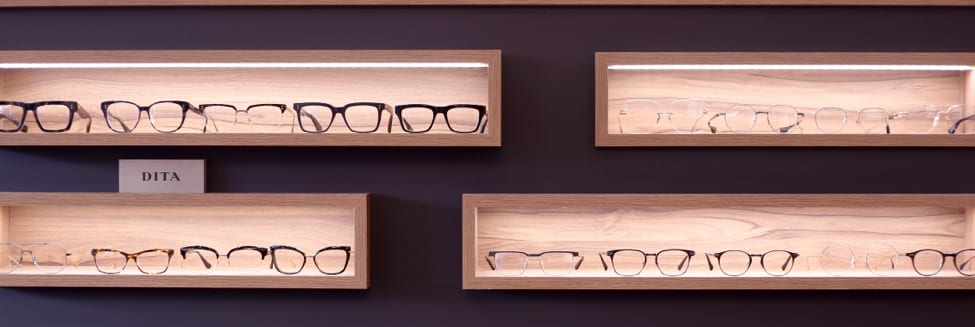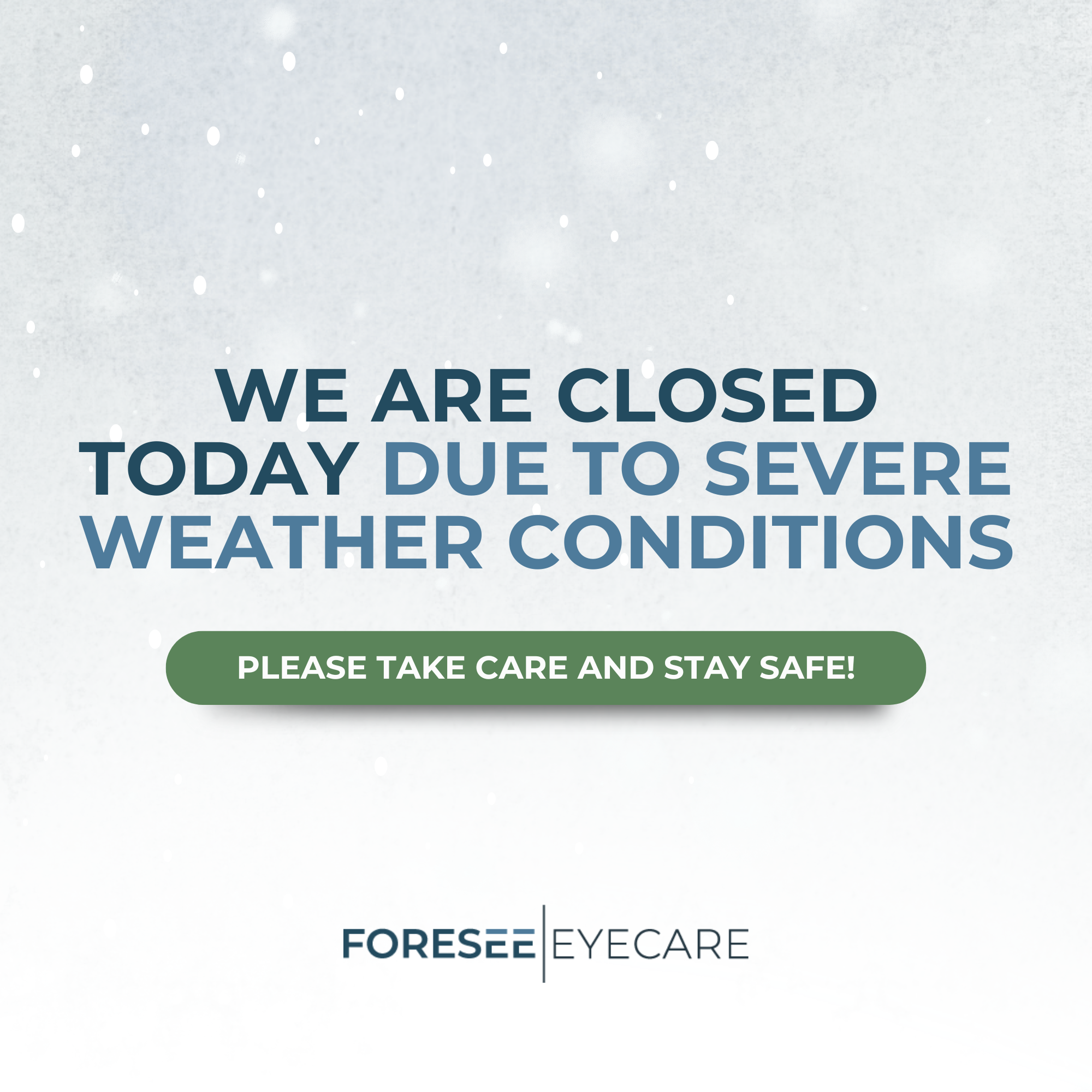Dry eye syndrome can be a frustrating and uncomfortable condition. Luckily, vitamins can provide a natural solution for those who suffer from dry eyes. Vitamins such as vitamin A, vitamin C, and omega-3 fatty acids, found in foods like oily fish and flaxseeds, have been shown to reduce the inflammation that leads to dry eyes.
The best vitamins for dry eyes include:
- Vitamin A
- Vitamin C
- Vitamin E
- Omega-3 fatty acids (DID YOU KNOW? omega-3 FA’s are not all created equally and there are specific ones for dry eyes! Consult with your Optometrist regarding EPA:DHA ratios and recommended omega-3 FA’s specifically formulated for dry eyes)
- Zinc
Additionally, supplements such as vitamin E and zinc may also be helpful. By incorporating these vitamins into your diet, you may be able to support your eye health and experience the relief that comes with properly hydrated eyes. Don’t let dry eyes hold you back. Give these vitamins a try and see if they can make a difference in your eye comfort.
Understanding Dry Eye Syndrome & Its Causes
Dry eye syndrome is a condition that affects millions of individuals worldwide, causing discomfort and irritation in the eye area. Many factors may contribute to this problem, such as aging, medical conditions, environmental reasons, and medication usage.
The primary cause of dry eye syndrome is a lack of adequate tears or poor-quality tears that don’t lubricate the eyes. Dry eyes can lead to redness, stinging, burning, and blurred vision. It is essential to understand what causes this condition so you can take measures to alleviate its symptoms and maintain good eye health.
Thankfully, there are effective treatments that can help mitigate dry eye problems. If you suspect that you have dry eye syndrome, don’t hesitate to consult with an optometrist who can provide guidance and help you manage your symptoms.
Vitamin A for Healthy Tears
Your eyes are constantly exposed to the elements, and they need tears to stay clear and healthy. But what happens when your tears aren’t doing their job? Dry eyes can be frustrating and uncomfortable, but vitamin A might be the solution you’ve been looking for.
This wonderful vitamin is essential for creating and maintaining healthy tears. It helps keep the surface of your eyes moist, which can help prevent tears from evaporating too quickly. So if you’re struggling with dry eyes, adding more vitamin A to your diet could be just what the doctor ordered. The addition of betacarotene can also produce better results.
Vitamin C to Support Tear Production
One of the most popular ways to support tear production is by eating foods rich in vitamin C, as it helps the body produce collagen. Collagen plays a vital role in keeping the eyes moist by maintaining the integrity of the conjunctiva, the mucous membrane that lines the eyelids and covers the white part of the eye. Also, vitamin C is said to help prevent cataracts.
From strawberries to bell peppers, incorporating vitamin C-rich foods in your diet may lead to not just healthy eyes but also overall well-being.
Vitamin E to Improve Tear Quality
Dry eye syndrome can be an irritating and sometimes painful condition, but a new study suggests that vitamin E may be a game-changer. Researchers have found that vitamin E can improve tear quality in those with dry eye syndrome, potentially providing relief for millions.
Tear quality is essential for healthy eyes and vision, and a lack of vitamin E can lead to dryness and discomfort. With this exciting new finding, incorporating additional vitamin E into your daily routine could be a simple and effective way to improve the health of your eyes and combat dryness. So ditch the discomfort and consider adding vitamin E to your diet for clear and comfortable eyes.
Omega-3 Fatty Acids for Moisture Retention
Omega-3 fatty acids may provide the moisture retention necessary to alleviate dry eye symptoms. These essential fatty acids are found in foods like fish, walnuts, and flaxseeds and have been shown to improve tear production and reduce inflammation.
Incorporating omega-3s into your diet as a supplement or through food sources may offer relief to those suffering from dry eyes. So try a few healthy servings of salmon and nuts.
Zinc to Support Optimal Eyelid Health
Zinc has been shown to be effective in supporting optimal eyelid health, which can be key for those suffering from dry eyes. By maintaining the health of your eyelids, you can help your eyes stay properly lubricated and reduce the irritation caused by dryness.
Whether you’re looking for a natural way to improve your dry eye symptoms or simply looking to keep your eyes healthy, incorporating more zinc into your diet could be a great way to support your eyelid health.
How to Incorporate Vitamins for Dry Eye into Your Diet
By incorporating certain vitamins into your diet, you can help relieve symptoms and prevent further complications. Vitamin A, for example, is essential for maintaining healthy eyesight and can be found in foods such as:
- Sweet potatoes
- Carrots
- Red pepper
- Pumpkin
- Squash
- Liver
- Dairy products
Additionally, Omega-3 fatty acids can help reduce inflammation associated with dry eye and can be found in oily fish and other foods such as:
- Salmon
- Mackerel
- Sardines
- Flaxseed
- Walnuts
- Chia seeds
- Soybean oil
- Canola oils
Another helpful vitamin is Vitamin C, which is an antioxidant that can help protect the eyes from damage. Foods such as:
- Citrus fruits
- Strawberries
- Leafy green vegetables
- Kiwi
- Broccoli
- Kale
- Bell pepper
- Spinach
- Sunflower seeds.
Vitamin E-rich foods include:
- almonds
- safflower oil
- sunflower seeds
- peanuts
- soybean, corn, and wheat germ oil
- asparagus
Foods that contain a lot of Zinc include:
- oysters
- crab
- lobster
- turkey
- nuts
- beans
- chickpeas
- pumpkin seeds
- whole grains
- milk
- fortified cereals
By making a few simple dietary changes, you can give your eyes the nourishment they need to stay healthy and hydrated.
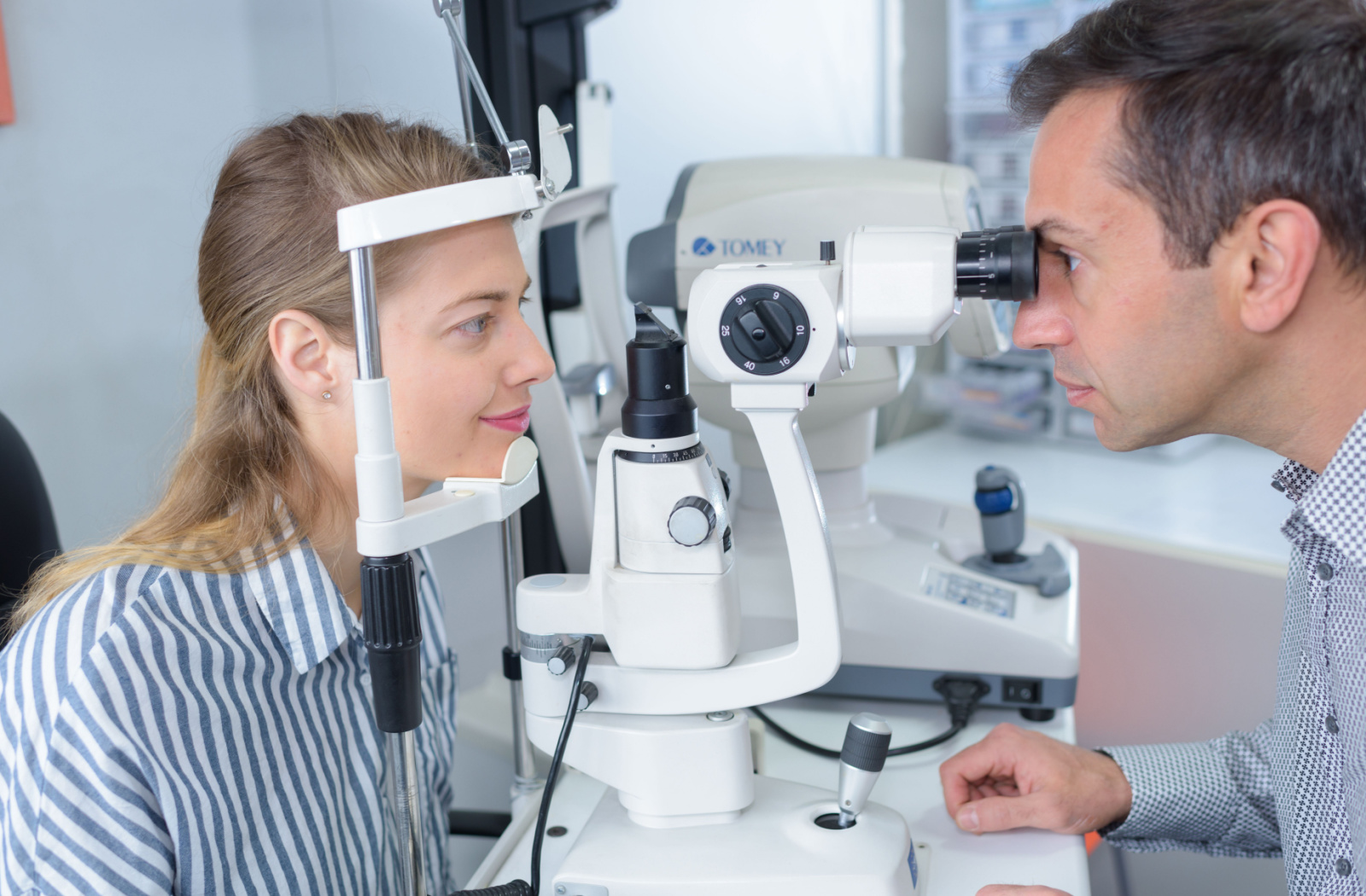
The Take-Away
While dietary changes can lead to improved tear production and lubrication for some people who suffer from dry eye syndrome, some cases may require additional treatments or medical procedures. If you’re experiencing uncomfortable and inconvenient symptoms associated with dry eye syndrome, contact Foresee Eyecare for more information and book an appointment with us today! We’d love to work with you on finding solutions that are tailored specifically for your needs!


